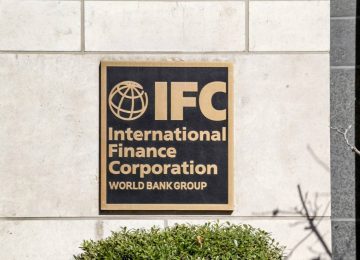A regulatory response is necessary to reduce the risks associated with climate change since it affects both price and financial stability.
According to M Rajeshwar Rao, Deputy Governor, Reserve Bank of India (RBI), the extent of their exposure to these risks and the mitigation strategies in place will determine the impact of climate change on the financial system and economy.
Mr Rao asserted that the regulators’ predicament is to not only establish a prudential enabling ecosystem but also to serve as a facilitator and enabler for the orderly and sustainable growth of the economy and financial system. He said that in order to reduce the risks associated with climate change, regulators must coordinate across sectors in addition to responding individually.
According to Mr Rao, the RBI has taken proactive steps to reduce the risks associated with climate change that could affect the financial system. A specialized team within banks has been established by the central bank to evaluate the risks associated with climate change and cultivate a strong ecosystem for sustainable finance.
Furthermore, the RBI surveyed 34 scheduled commercial banks about climate risk and sustainable finance. Following this, the RBI released a discussion paper on climate risk and sustainable finance, along with a framework on green deposits.
“RBI has been actively engaging with various stakeholders in the financial sector for integration of climate change risks in traditional risk management framework,” Mr Rao said. “The central bank is engaged in climate scenario analysis to identify vulnerabilities in their balance sheets; taking steps to ensure adequate flow of credit for mitigation purposes; and addressing gaps in capabilities for measuring and managing climate-related financial risks.”
He emphasized that there is currently no standard procedure among financial institutions to identify loan assets that have degraded due to any climate risk event, which restricts the amount of accurate loan loss data that is available.
Additionally, the RBI has released a draft disclosure framework for financial risk related to climate change for public review. Rao stated that the final guidelines will probably be released soon based on the feedback received. The disclosure framework’s goal is to help regulated entities identify and develop the skills necessary to reduce the risks associated with climate change, not to limit lending to specific industries or sectors.
“Consequentially, various approximation methods/data sets are being used at this point to arrive at loan loss data and measure expected future losses. There is an urgent need to develop an ecosystem to mainstream adaptation finance and to rise above the typical corporate social responsibility-linked funding and public investments,” Mr Rao said.
He added that the creation of a green and sustainable asset repository that will highlight the applications of these technologies for financial institutions is urgently needed.
“Given the quantum of funding required for sustainable finance, besides, other sectoral domestic investment requirements, there is a pressing need to leverage available international climate finance funds for climate mitigation and adaptation projects,” Mr Rao said.












